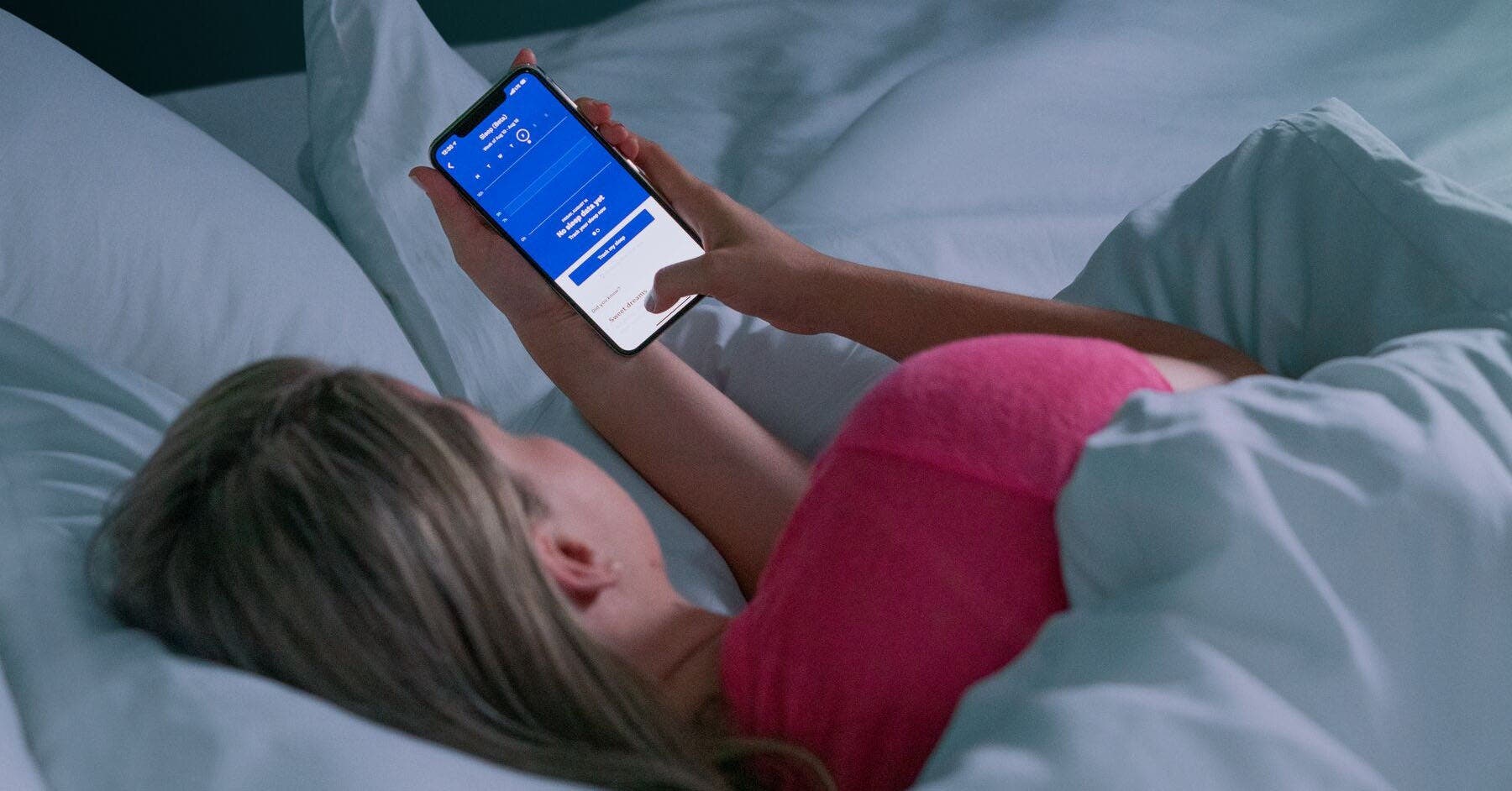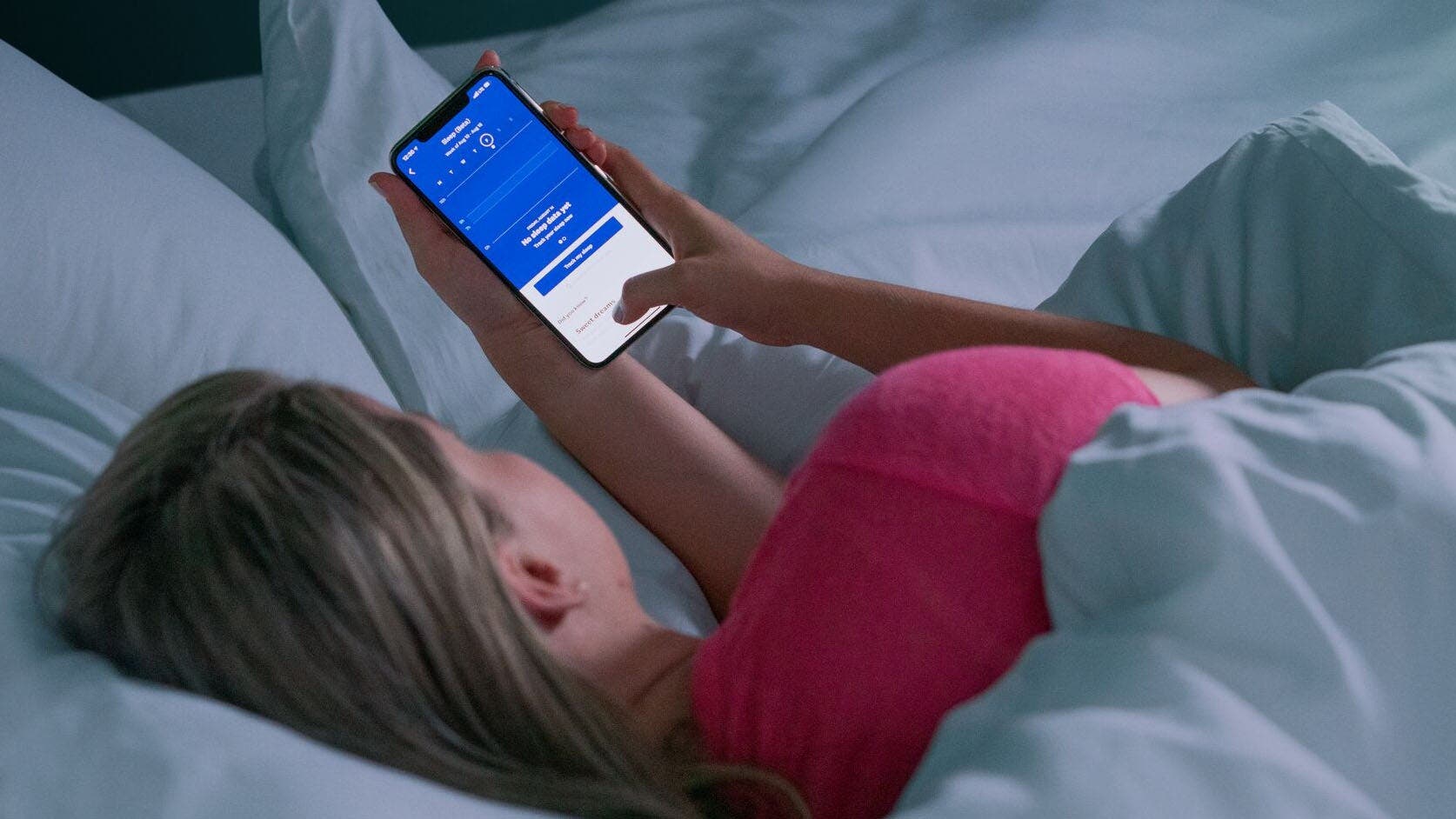To track or not to track your Z’s


To track or not to track your Z’s
Here at WW, we’ve been talking a lot about getting good sleep – tips for better rest, overcoming nighttime disturbances, how exercise affects your sleep, and the impact of sleep on your mood and hormones. Now we’re looking at the pros and cons of tracking your sleep – some think it’s a great idea, some not so much. You can give it a try and see if it works for you.
The idea of tracking your sleep is becoming more common with the continued popularity of wearable fitness and health monitors.
Wearable technology has been the No. 1 fitness trend, according to the American College of Sports Medicine’s annual survey, since 2016 (save for 2018, when it dropped to No. 3). Fitness trackers can tell you how many steps you’ve walked, how many calories you’ve burned, what your resting heart rate is, and many of them can also give you insight on your sleep patterns.
“Sleep is one of the most underrated, yet most beneficial aspects to our health and well-being,” says Monisha Bhanote, MD, FCAP, a triple board-certified physician and Yoga Medicine® teacher. “Individuals who have sleep issues are at increased risk for developing anxiety, emotional disorders and depression.”
She points out that a Norwegian study found that lack of sleep is a risk factor for anxiety and people with insomnia were 20 times more likely to develop a panic disorder.
“Using a sleep tracker may help you improve your sleep by recording data that you may not have realized was affecting you,” Bhanote says. “They go beyond telling you how many hours you are sleeping to addressing sleep efficiency, restfulness, latency, timing and total sleep. Sleep trackers can also tell how long you are in REM, light and deep sleep.”
One of the most useful measurable items in a sleep tracker is heart rate variability, or HRV, Bhanote says.
“HRV is the variation between each heartbeat and yet another way to track well-being. The variation is controlled by our autonomic nervous system (ANS), which is subdivided into our sympathetic (fight and flight) and parasympathetic (rest and digest) systems,” she explains.
“So HRV is a non-invasive way to observe imbalances in ANS. The higher our HRV, the greater our capacity to switch gears between fight and flight [and] rest and digest.”
This flexibility, she says, makes us more resilient. And, she says, recent research has shown a relationship between low HRV and worsening depression and anxiety.
“In medical settings,” Bhanote says, “we analyze HRV with an EKG [electrocardiogram], but now there are a number of trackers that can help at home.”
A sleep tracker can also be a source of motivational behavioural change, Bhanote adds. “It may give you insight into your own sleep and how your body functions.”
Sleep health educator and founder of Insomnia Coach Martin Reed has a different perspective – and if you struggle with insomnia, you may agree.
“If someone has chronic insomnia, sleep-tracking devices can be very unhelpful, since they risk increasing sleep-related worry and anxiety and this makes sleep more difficult,” he says.
He also notes there are some “question marks” over the accuracy of these devices, particularly for people who have insomnia.
“Since, ultimately, the key to better sleep for people with chronic insomnia is to avoid the thoughts and behaviours that perpetuate sleep disruption (this includes sleep effort, ongoing sleep-related research, and sleep-related thoughts and worries), we can see how checking each night of sleep using a sleep-tracking device can be unhelpful,” Reed adds.
“In my experience working with clients with chronic insomnia, they often report how much better they feel when they stop using a sleep-tracking device.”
Reed says, “When it comes to sleep, all that really matters is how you feel. If you feel refreshed after a night of sleep and can get through the day, it’s likely that you are sleeping just fine.”
Whether you decide to track your sleep or not, getting good quality sleep is important.
“Having good sleep hygiene should be part of everyone’s well-being plan,” says Bhanote. “Think of it like having good dental hygiene to prevent cavities, but here good sleep hygiene can restore the ability of the human body to heal and repair.”
Here are Bhanote’s tips for good sleep hygiene:
1. Maintain a regular sleep routine: “This includes going to bed and waking at the same time daily, even on weekends. The variable for this can be up to an hour, but ideally you want it to remain the same every night of the week.”
2. Avoid naps when possible: “If you have ever noticed when you take an afternoon nap, your evening sleep is not as good, it is because we are creating sleep fragmentation, which can accumulate overtime.”
3. Avoid caffeine in the afternoon: “Each person metabolizes caffeine differently, but on average it takes five hours for the stimulatory effect of caffeine to wear off and then 10 hours for it to leave the body. Afternoon caffeine habits can keep one up at night.”
4. Use your bed for sleep and sex: “If you watch TV or read in bed, you are now associating bed with a place of wakefulness.” Bhanote also notes that the blue light from your TV, phone or tablet can adversely affect your circadian rhythm. If you need to use devices at night, she suggests trying blue light-blocking glasses.
5. Avoid alcohol: “Many people like to believe that having a drink in the evening helps them relax and fall asleep, but that is quite the contrary. Alcohol may make them fall asleep faster, but alcohol disrupts circadian functioning and reduces our bodies’ natural melatonin production.”
6. Create a bedtime routine: “[This] may include a warm bath, meditation [or] restorative yoga poses.”
